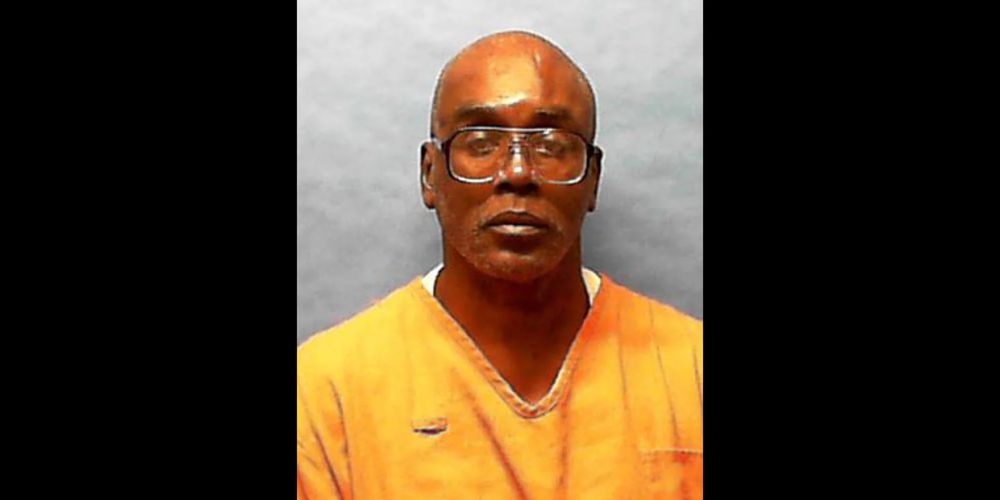Justices rejected arguments about the abuse Victor Tony Jones suffered at the now-closed Okeechobee School.
The Florida Supreme Court refused to stop the execution of Victor Tony Jones next week for the 1990 murders of a couple in Miami-Dade County, dismissing concerns about Jones’ childhood mistreatment at a notorious state reform school.
Attorneys for Jones, 64, contended that “newly discovered evidence” about his abuse at the now-shuttered Okeechobee School would likely result in a life sentence in a retrial. That evidence came from Jones and hundreds of other men who received state compensation this year for mistreatment at the Okeechobee School and another facility, the Arthur G. Dozier School for Boys.
However, the Supreme Court ruled 5-1, declaring the claims about the abuse “procedurally barred.”
“The alleged abuse occurred nearly 50 years ago — and roughly 15 years before his trial — yet Jones did not raise it at trial or in any prior postconviction proceeding,” Wednesday’s opinion said. “Because Jones’ claim about any abuse he suffered at the Okeechobee School could have and should have been raised earlier, it is procedurally barred.”
The 23-page opinion also said that “any mitigation that Jones might offer at a retrial regarding the Okeechobee School would derive from the abuse itself —known to him since the 1970s —not from the 2025 eligibility letter (for compensation).”
“Even assuming that Jones’s eligibility for compensation under the program constitutes newly discovered evidence, Jones cannot establish that his eligibility for compensation or even a credible claim of abuse at the Okeechobee School is of such a nature that it would probably yield a life sentence on retrial,” said the opinion, shared by Chief Justice Carlos Muniz and Justices John Couriel, Jamie Grosshans, Renatha Francis and Meredith Sasso.
Justice Jorge Labarga dissented but did not provide an opinion. Justice Charles Canady was recused.
On August 29, Gov. Ron DeSantis signed Jones’ death warrant, making him the 13th convict executed in Florida this year. Jones was condemned to death for murdering his bosses, Matilda Nestor, 66, and Jacob Nestor, 67, at their firm in December 1990, according to court documents.
“Mrs. Nestor was stabbed in the back of the neck, severing her aorta,” Wednesday’s opinion said. “Mr. Nestor was stabbed in the chest, puncturing his heart. Before succumbing to his injury, Mr. Nestor was able to retrieve his pistol and shoot Jones in the forehead. Police found Jones locked inside the building with the Nestors’ wallets, keys, and other belongings in his pockets. At the hospital, Jones admitted to a nurse that he killed the couple because they owed him money.”
Jones’ counsel also unsuccessfully argued before the Supreme Court that he had an intellectual handicap and that executing him would violate the Eighth Amendment’s prohibition on cruel and unusual punishment.
Attorneys representing death row defendants frequently file a final appeal with the United States Supreme Court. Jones is slated to be executed at 6 p.m. on Tuesday at Florida State Prison.
The Florida Catholic Conference on Tuesday revealed a letter it addressed to DeSantis requesting that Jones’ sentence be commuted to life in prison without the possibility of parole.
“We must call attention to the fact that Mr. Jones is a survivor of abuse at the hand of the state at the Okeechobee School,” Michael Sheedy, the conference’s executive director, wrote in the letter. “It cannot be that with one hand the state pays out compensation to men abused and tortured as children in its care (abuse of which the jurors in this case were not told) while at the same time with its other hand puts one of these victims to death. To what degree did the abuse suffered by Mr. Jones and acknowledged by the attorney general contribute to the disturbed condition in which he committed his crimes? We appeal to your conscience, Governor. This extraordinary factor alone justifies commuting the death penalty to a sentence of life without parole.”
Prior to this year, Florida held the modern-era record for the most executions in a single year with eight in 1984 and 2014. The modern era includes the period after the U.S. Supreme Court stopped the death penalty in 1972 and resumed it in 1976.
This year, the state executed David Pittman on September 17, Curtis Windom on August 28, Kayle Bates on August 19, Edward Zakrzewski on July 31, Michael Bell on July 15, Thomas Gudinas on June 24, Anthony Wainwright on June 10, Glen Rogers on May 15, Jeffrey Hutchinson on May 1, Michael Tanzi on April 8, Edward James on March 20, and James Ford on February 13.
